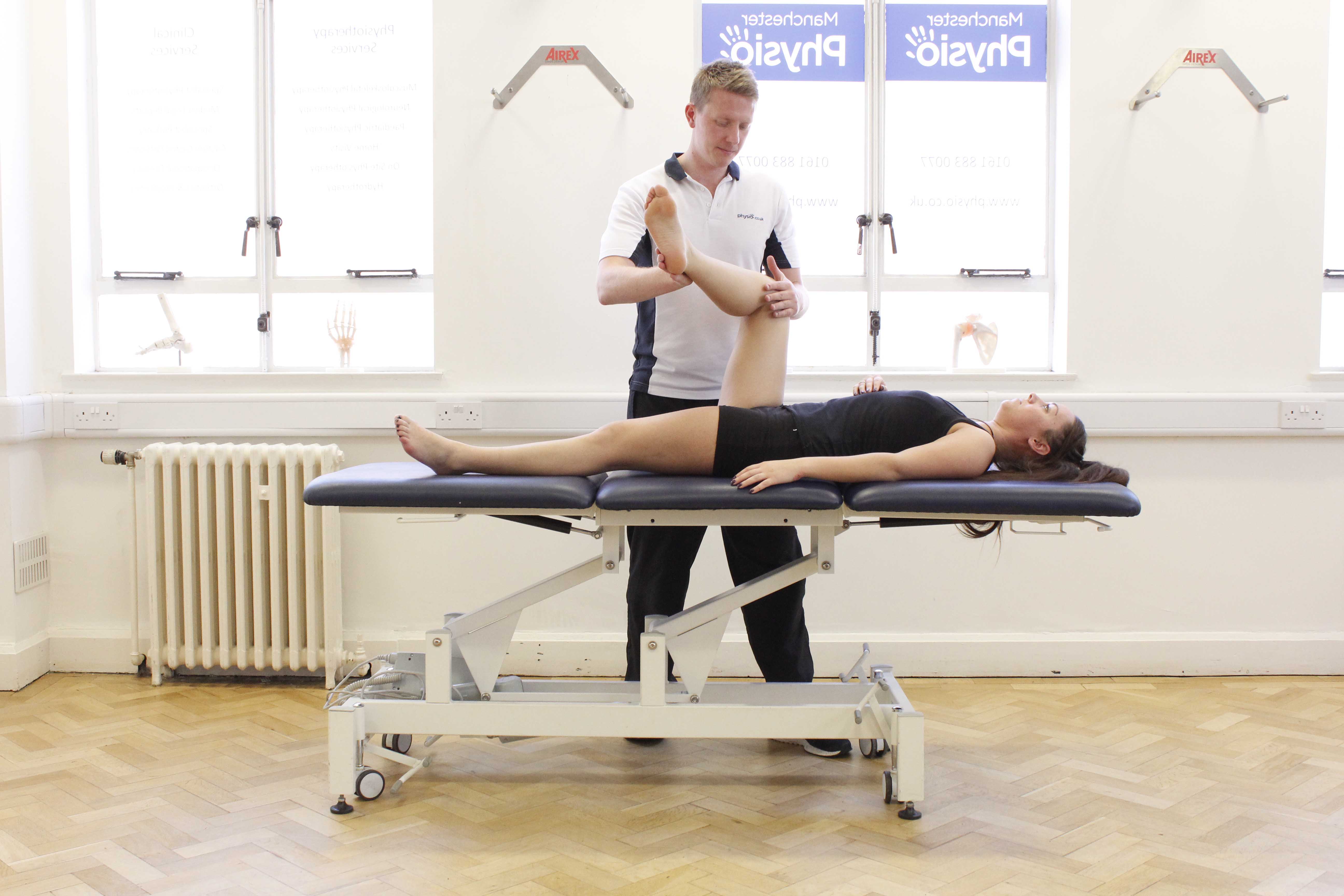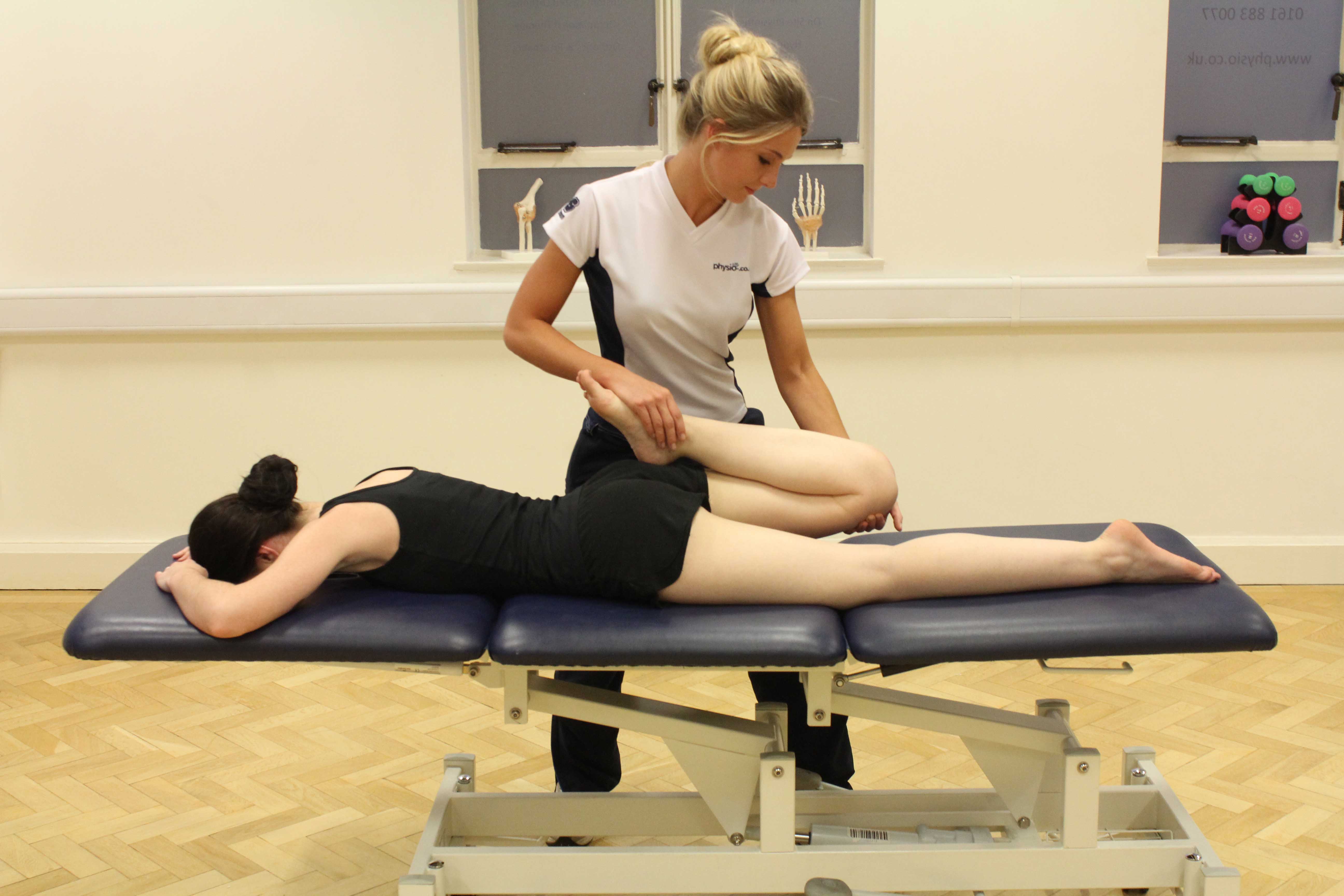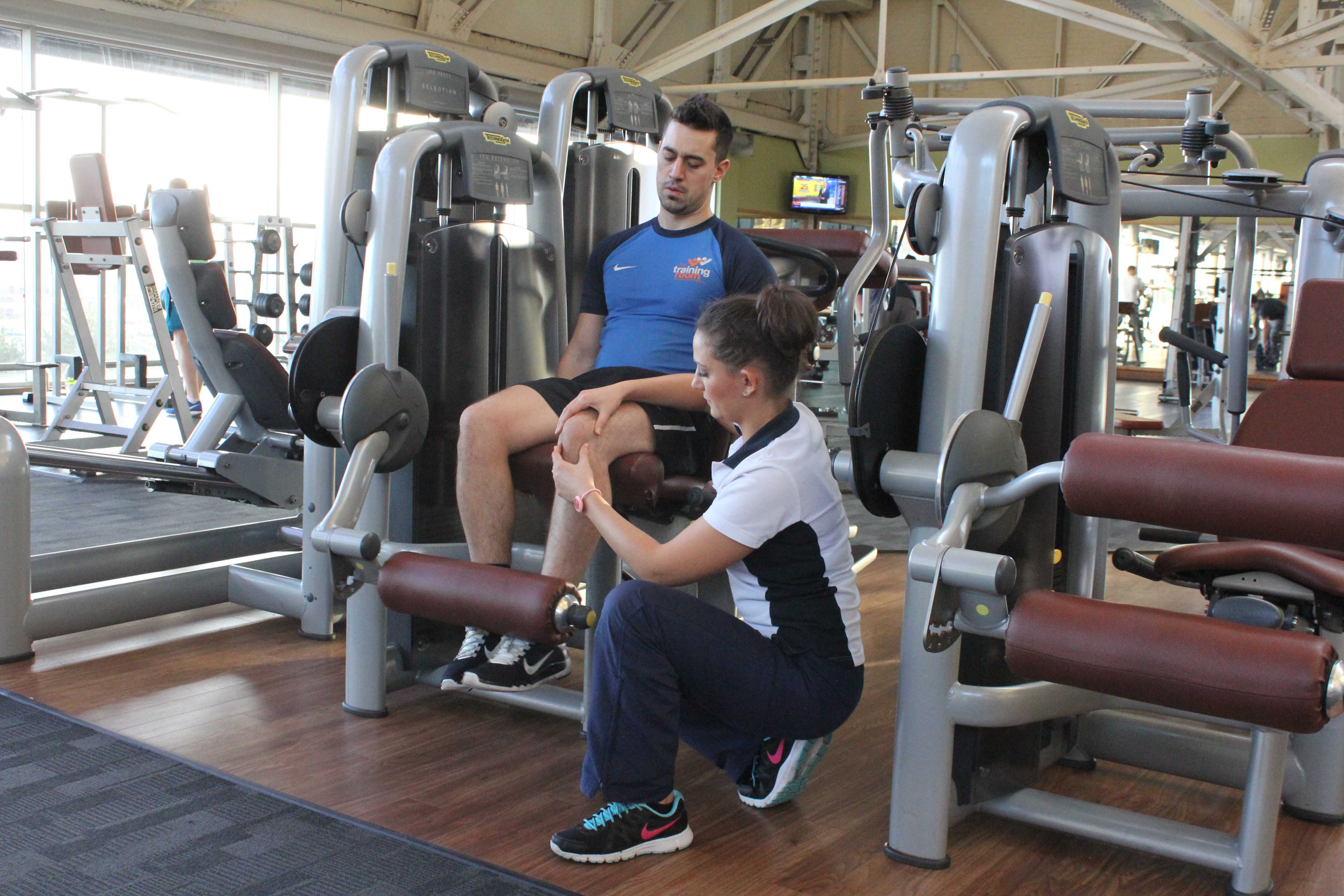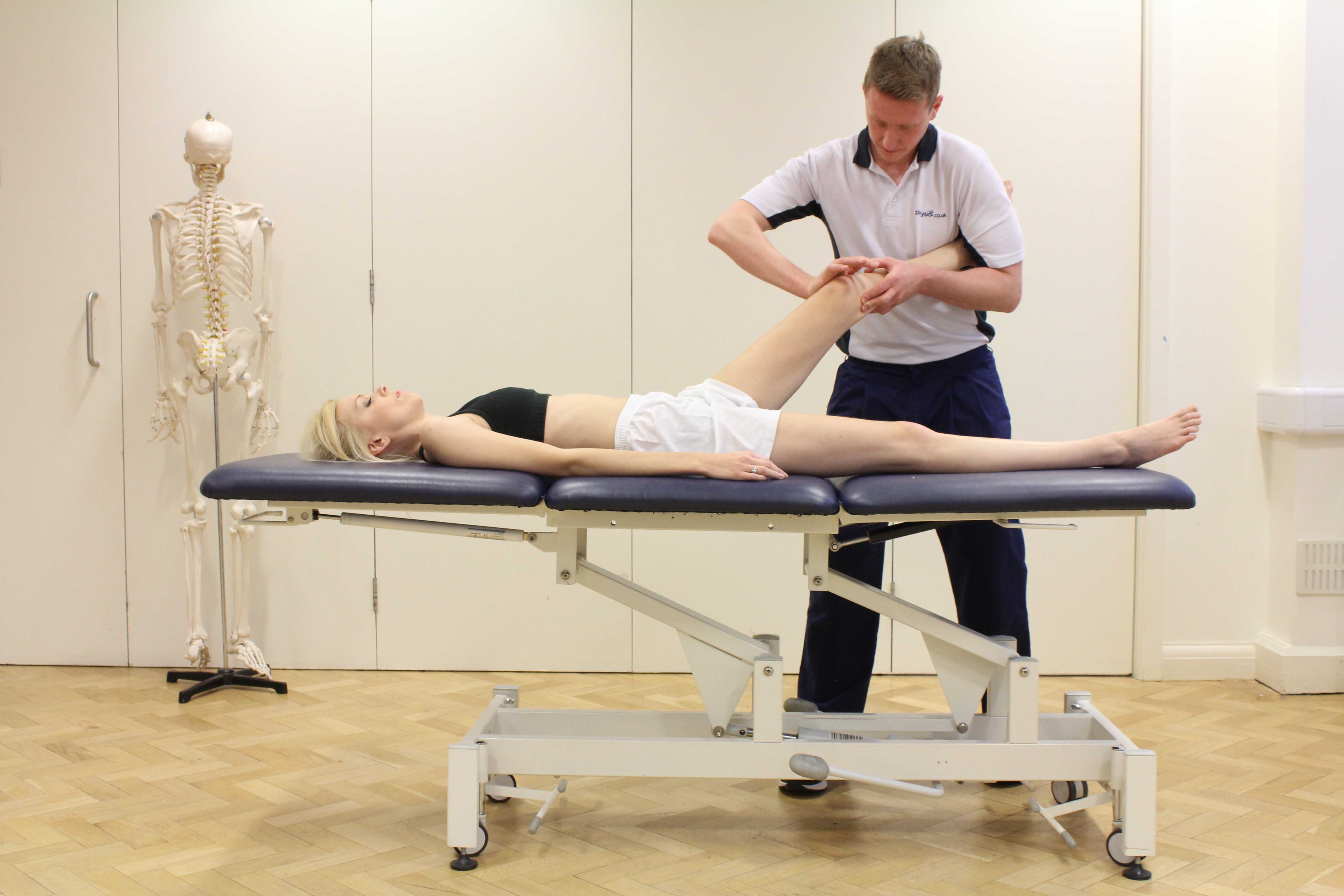Partial Knee Resurfacing Physiotherapy
Partial knee resurfacing / replacement is the replacement of one of the three parts of the knee joint and is an alternative to a total knee replacement which can be unnecessary in some cases.
There are three compartments of the knee: the medial (inside) compartment, the lateral (outside) compartment, and the patellofemoral (knee cap) compartment. Partial knee resurfacing (PKR) can be carried out to help relieve arthritis that is affecting one compartment of the knee considerably more than the other compartments. With PKR, only the damaged surface of the knee joint is replaced helping to reduce the trauma to healthy bone and tissue. Partial knee resurfacing can be referred to in three different ways:
- Unicompartmental knee resurfacing: is a procedure that resurfaces only the affected compartment of the arthritic bone whether it is affecting either the medial or lateral compartments.
- Multi compartmental knee resurfacing: is a procedure that resurfaces two out of three compartments of the knee that are affected by arthritis or degeneration.
- Patellofemoral knee resurfacing: is a procedure that resurfaces the worn patella and trochlea of the femur (the grove at the end of the thigh bone) that together make up the patellofemoral joint.
Partial knee resurfacing means less time in surgery, a smaller incision, and a faster recovery time than total knee replacement. Also, because less bone is removed, there is less trauma and soft tissue damage causing less pain and a more natural feeling in the knee after surgery compared to a total knee replacement. However, in cases that have significant damage caused by arthritis then a total knee replacement is recommended. Also, partial knee resurfacing will not last forever and over time total knee replacement may be the only option.
 Above: Mobilisations of the knee joint during an assessment by a MSK therapist
Above: Mobilisations of the knee joint during an assessment by a MSK therapistPhysiotherapy before partial knee resurfacing
Before having your partial knee resurfacing surgery you should undergo a personal physiotherapy programme with Physio.co.uk to help prepare you for your surgery and also help reduce the time is takes to recover after surgery. Your physiotherapy programme with Physio.co.uk prior to your surgery will focus on strengthening the muscles around your knee whilst also strengthening muscles in your hip, ankle and unaffected leg. Physiotherapy will also include the maintenance of the range of movement in your knee and ensuring that your knee is in an optimal condition to guarantee a more successful surgery.
 Above: Passive stretch of the knee joint by a MSK therapist
Above: Passive stretch of the knee joint by a MSK therapistSymptoms after partial knee replacement
Immediately after your partial knee replacement you will experience some pain and swelling in and around your knee and therefore be given modalities to control for this. You will also experience stiffness in your knee and limited range of movement. You will be given elbow crutches and advised to weight bear as tolerated. You will be unable to drive until you have regained painless, full range of movement in your knee. Physiotherapy should start immediately after your partial knee replacement.
 Above: Strength training for the knee, supervised by a MSK Physiotherapist
Above: Strength training for the knee, supervised by a MSK PhysiotherapistPhysiotherapy after partial knee replacement
It is essential to undergo a comprehensive physiotherapy programme with Physio.co.uk after your partial knee replacement to ensure the success of your surgery, prevent the likelihood of further problems and delay the need for a total knee replacement in the future. The benefit of having a partial knee replacement is that your rehabilitation will take a lot less time than that of a total knee replacement.
 Above: Mobilisations of the knee joint by a MSK therapist
Above: Mobilisations of the knee joint by a MSK therapistEarly stages (0-4 weeks)
During the early stages of your rehabilitation, your physiotherapy programme with Physio.co.uk will focus on controlling any pain or swelling you will be experiencing, increasing range of movement in your knee, and get you fully weight bearing and mobile as soon as possible after your surgery. Goals will also include strengthening the muscles around your affected knee, around your hip and ankle whilst also strengthening the muscles in your opposite leg. Your physiotherapy will include:
- Cryotherapy (ice) before and after activities
- Compression and elevation
- Early ambulation (walking)
- Gait re-education
- Full weight bearing exercises as tolerated
- Range of movement exercises
- Strengthening of quadriceps and hamstrings
- Stretching of quads, hamstrings and calf muscles
- Strengthening of hip, ankle and muscles in uninjured leg
- Hydrotherapy
Later stages (1-2 months)
Your rehabilitation with Physio.co.uk will now focus on the continuation of strengthening and stretching exercises from previous weeks, full range of movement exercises, gait re-education, proprioception (balance) training, cardiovascular fitness and functionally specific activities. Your physiotherapy will include:
- Continuation of strengthening exercises for quadriceps and hamstrings and other lower limb muscles
- Full range of movement exercises
- Full weight bearing activities
- Stretching of quadriceps, hamstrings and calf muscles
- Proprioception training (balance)
- Gait re-education training
- Agility exercises (changing direction)
- Static bicycle (resistance as tolerated)
- Hydrotherapy
Success of your rehabilitation with Physio.co.uk will depend on your commitment to your physiotherapy programme, your initial condition, and the type of partial knee resurfacing surgery you have had.
Summary
Partial knee resurfacing is a surgical procedure that replaces the surfaces of only part of the knee joint and is an alternative to total knee replacement if this is unnecessary. Partial knee resurfacing is essential if degenerative conditions such as arthritis are significantly affecting up to two out of three compartments of the knee joint and consequently its function. Partial knee resurfacing will help alleviate symptoms caused by arthritis, increase range of movement, improve function in the knee and further delay the need for a total knee replacement. After a partial knee replacement it is essential to undergo a comprehensive physiotherapy programme with Physio.co.uk to enhance the success of the surgery by reducing pain and swelling, increasing strength, range of movement and flexibility in the knee. Physio.co.uk will provide a personal physiotherapy programme that will guarantee the return of full function in your knee and get you back doing your everyday activities as soon as possible. Call Physio.co.uk now on 0330 088 7800 for more information or to book an appointment. Alternatively you can book online or send us an email at office@manchesterphysio.co.uk.

 0330 088 7800
0330 088 7800


































